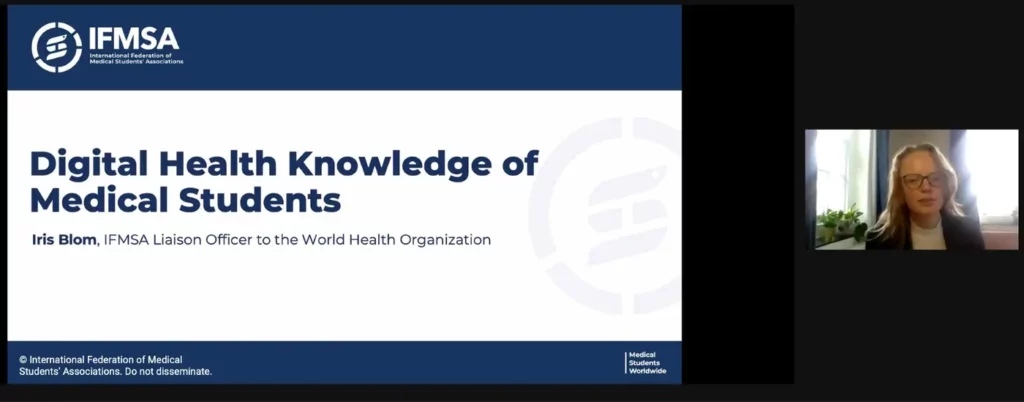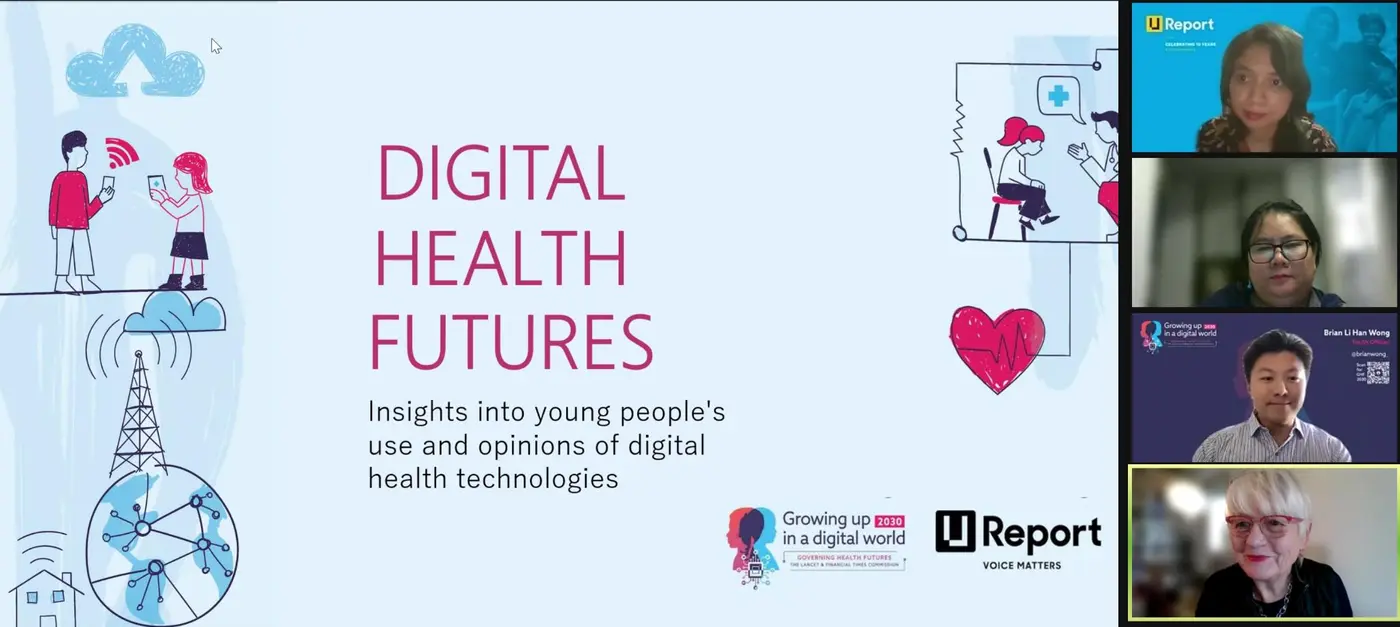Digital health literacy is essential for people—including children and youth—to fully benefit from digital transformations in health. Alongside digital access, digital health literacy is gaining recognition as a determinant of health and wellbeing. Adequate digital health literacy enables individuals to not only seek, find, understand, and appraise the reliability of health information and advice from digital sources, but also apply the knowledge gained to address or solve health problems.
Making the case for integrated digital, health and civic literacy
The Lancet and Financial Times Commission on Governing health futures 2030 (‘GHFutures 2030 or the Commission’) hosted a session, ‘Digital, health, and civic literacy: Pillars for equitable health futures’ at the first Global Health Literacy Summit (GHLS) virtual conference on 4 October 2021. The event included five panelists: Professor Ilona Kickbusch; Co-chair of the GHFutures2030 Commission; Vania Santoso and Sandar Linn, UNICEF UReport Indonesia and Myanmar respectively; Sandra Cortesi, Director of Youth and Media at the Berkman Klein Center for Internet & Society at Harvard University; and Iris Blom, Liaison Officer to WHO at the International Federation of Medical Students Association (IFMSA) . The session was moderated by GHFutures 2030 Youth Officer, Brian Li Han Wong.
The session opened with an intervention from Ilona Kickbusch who proposed that for young people to fully participate in digital transformations in health, they not only need digital literacy and health literacy, but also civic literacy.
Kickbusch argued that, “civic literacy is important as health and health literacy have political dimensions and because of the strong links between public health values and the values of democracy.”
Integrated digital-health-civic literacy and skills are necessary for young people to not only have a voice in digital and health spaces, but to also adequately prepare for—and meaningfully contribute to—a digitally-connected society and the future workforce. Moreover, they can empower young people to critically analyse digital content and effectively manage their personal data. For example, in order to build trust in digital technologies and platforms, young people need to understand what data is being extracted from them, by whom, and for what purpose.
Insights from the GHFutures2030 Commission’s research with young people
Taking place just a few weeks ahead of the launch of the Commission’s report, the GHLS session presented an opportunity to preview findings of the Commission’s research over the past two years which reinforces young people’s need and demands for integrated literacy and skills to enhance their health and wellbeing to thrive in an increasingly digital world.
Sandar Linn and Vania Santoso from UNICEF shared the findings of a joint survey with the Commission on young people’s perspectives of digital health. The results of the poll revealed that young people are concerned about the reliability of health information online and they want to enhance their literacy and skills in order to maximise the benefits of digital health.
“A lack of connectivity prevents many young people from taking part in digital initiatives such as U-Report and they are missing out on opportunities to share their views. More partnerships and resources are needed to close the digital divide and build young people’s digital literacy and skills,” said Linn.
U-Report is an example of a digital initiative that effectively builds young people’s literacy in different areas. U-Reporters are able to build their digital skills by using different platforms to participate in polls. By connecting U-Reporters with decision-makers, their civic literacy is also increased.

To also gain qualitative insights from young people about health and wellbeing in a digital age, the Commission partnered with the Youth and Media team at Berkman Klein Center for Internet and Society at Harvard University to conduct focus groups with 12-18 year olds. Sandra Cortesi, Director of the Youth and Media Project shared insights from this participatory research.
“We found that young people believe that digital technologies are an increasingly important tool for connecting with others and are both a source and way of engaging with health information,” said Cortesi.
Echoing data from the U-Report poll, young people expressed concerns about information quality. Young people recognised that digital health literacy has become especially important during the COVID-19 pandemic to process abundant health-related information and battle the ‘infodemic’.
“Young people want skills to thrive in a digital world, including digital citizenship skills. In our initial findings, literacy is a critical component of young people’s perception of wellbeing,” said Cortesi.

In collaboration with the International Federation of Medical Student Associations (IFMSA), the Commission also sought to better understand current perspectives from medical students on medical education in relation to digital health and the future of health governance. Iris Blom, Liaison Officer to WHO at IFMSA, shared findings from a survey of more than 700 medical students from 111 countries and 487 different universities.
“This was the first survey to show perspectives of future healthcare providers, the first of its kind, which is hard to believe,” exclaimed Blom.
The findings of the survey revealed that, despite the prominent role that health professionals play in digital health and the desire from students for more education on digital health, this topic is not a core component of most medical students’ core curriculum.
More than half of respondents said that they don’t get enough digital health education to prepare them for their future jobs in the health sector. The majority of medical students said they were comfortable adopting digital technologies into their work and believed digital health can contribute to efficiency, access, and quality of healthcare.
Closing gaps in digital, health, and civic literacy
As the research conducted on behalf of the Commission highlighted, young people need and want comprehensive digital, health, and civic literacy to advance their own health and wellbeing, but also that of their communities. Greater literacy is important for young people to be able to confidently navigate digital environments, distinguish accurate and inaccurate health information, and take control of their personal data.
Whole-of-society efforts are needed to implement robust and large-scale programmes to build digital, health, and civic literacy among children and young people. To ensure no one is left behind, barriers must be removed to education and digital connectivity.
“We need to call on the young people themselves to help reach those youth on the other side of the divide who may not have access, everyone is connected to someone and that can help us build the bridge across the gap,” urged Blom.
Panelists urged for further research with underrepresented groups of young people to understand the diverse experiences and literacy needs of young people, particularly those who are not already regular users of digital technologies. Moreover, longitudinal research is also necessary to understand the effects of digital technologies on young people’s health and wellbeing, and the most effective ways to build literacy.

